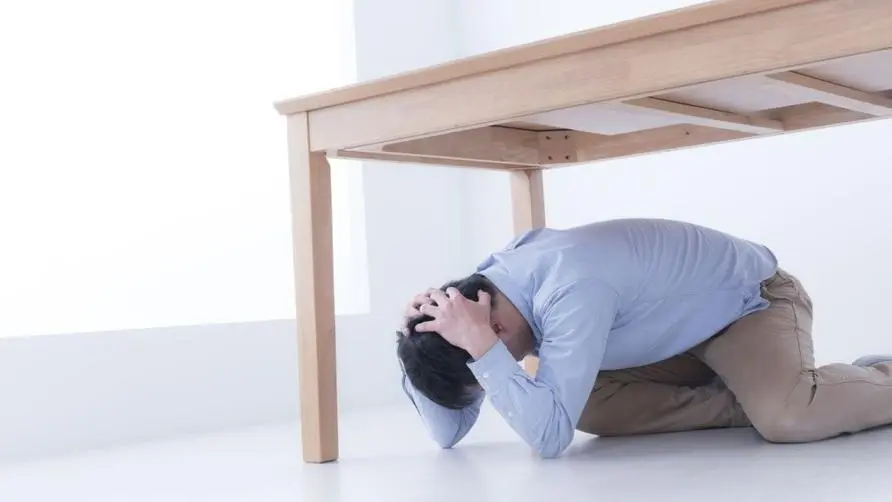Do you often have nightmares and become nervous and irritable after an earthquake? If not treated promptly, PTSD may occur! Doctors Reveal 4 Tips to Stay Away from Trauma "Post-Earthquake Group"

A magnitude 7.2 earthquake occurred in eastern Taiwan on April 3 this year (2024). Although the panic caused by the earthquake may have gradually subsided, the impact on mental health may continue to exist! Many people have become more sensitive after the earthquake and are more likely to be frightened and even have nightmares. In this regard, Dr. Wang Haowei, a psychiatrist and chairman of the Chinese Psychotherapy Foundation, reminded the public that the occurrence of some psychological symptoms may be related to “post-earthquake traumatic syndrome.”
Do you often have nightmares and become nervous and irritable after an earthquake? Doctor: Failure to treat in time may lead to PTSD
Dr. Wang Haowei pointed out that the trauma caused by the earthquake may cause anxiety, depression and other emotions in many people. If these emotional problems are not dealt with promptly and effectively, they may evolve into “post-traumatic stress disorder (PTSD)”. Treatment The complexity and difficulty are relatively high; according to research statistics, for high-risk groups who have experienced traumatic events, the lifetime prevalence rate of PTSD ranges from 5-75%.
PTSD may have a huge and unimaginable impact on mental health. Therefore, it is crucial to remind the public not to ignore the psychological impact of earthquake events and to seize the golden time as soon as possible to pay attention to their own mental health. Failure to seize the time to self-assess and seek help may increase the complexity and difficulty of future treatment.
How to know if there is a traumatic “post-earthquake group”? Quickly use the “PTSS-10” post-traumatic stress scale to self-test
In order to help people better cope with post-earthquake emotional problems, Dr. Wang Haowei suggested that people can first use the government-recommended “PTSS-10”: Post-Traumatic Stress Syndrome Scale to conduct self-assessment. According to the ten questions in it, check whether it suits them. situation. In addition, through self-assessment, you can understand your own status more clearly and handle and respond accordingly.
As for what situations require seeking medical assistance as soon as possible? Dr. Wang Haowei specially reminded that you should pay attention to symptoms that suddenly appear after an earthquake event. For example, you did not have insomnia in the past, but you develop insomnia symptoms after the event. You need to pay special attention to whether the condition has gradually improved or has continued effects. In addition, self-assessment does not only need to be done once, but can be done at regular intervals to observe changing trends.
If you find an increasing trend in PTSS-10 scores, you should seek professional psychosomatic medical help. Dr. Wang Haowei pointed out that an increase in scores may represent a “moderate to severe” condition that requires more in-depth professional treatment and help, and the medical team can provide more effective support and treatment plans; if the assessment result score decreases over time, it is shown as mild to moderate. situation, it is suggested that various strategies can be adopted to promote psychological recovery.
Not only does exercise and good sleep help boost your mood! Medical advice: Do 4 things to stay away from post-disaster haze
If people want to promote psychological recovery after a disaster, what measures can they take proactively? Dr. Wang Haowei suggests that you can practice the following four measures to relieve the trauma or negative emotions caused by disasters:
Be active. People can actively participate in physical activities, such as brisk walking, yoga, etc., to help reduce stress hormones, promote the release of endorphins, improve mood and reduce anxiety.
Get a good night’s sleep. Good sleep management is crucial to mental health. People should establish a fixed sleep schedule and try to ensure adequate sleep.
Stay social. Finally, stay connected with family, friends, and community to share your feelings and experiences.
Practice mindfulness. People can try different ways to relieve stress, such as exploring mindfulness or other meditation techniques, which can be assisted by tools such as mobile apps.
Finally, Dr. Wang Haowei also recommended the free service “Mind Relief” developed and provided by Mingyi Foundation. In addition to the built-in PTSS-10 assessment scale, it also integrates mindfulness meditation, traditional Chinese medicine meridian energy, and AI concepts. , people can directly undergo meditation and conditioning according to their needs after testing and assessment. We hope to accompany people through the emotional problems after the earthquake, provide psychological support, and regain the balance of life.
Extended reading:





